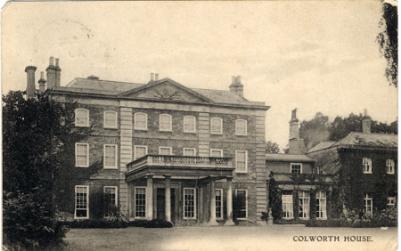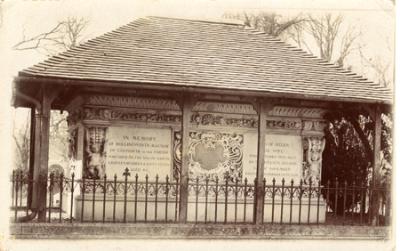Odell Sharnbrook Paths to Crime Walk stop 4 Colworth Estate
Colworth Estate

A Shooting Party
In December 1847 Hollingworth Magniac, the master of the Colworth Estate, held a shooting party at which forty one hares were killed. When the hares were taken home and counted two were missing. Magniac's gamekeeper, Thomas Allen, suspected one of the beaters who had assisted at the shoot, Thomas Burgess. He therefore sent an assistant keeper, interestingly named Spencer Spencer, to watch Burgess's house. Soon after eight in the evening Burgess left the house and went in the direction of Odell Wood where the shoot had taken place. Burgess returned about an hour later and Spencer confronted him, asking what he had in his pockets. Burgess took out two hares and gave them to him. Spencer took Burgess and the hares to the gamekeeper who was too angry at the time to take any notice of what Burgess had to say. Later in the week Burgess said he had been compelled by distress to take the hares and had hoped to make two or three shillings towards his rent. The indictment was dismissed at the Quarter Sessions as "no bill", indicating that the Grand Jury found there was insufficient evidence for the case to be tried.
The 1830s and 1840s were a period of rural poverty, particularly in the south and east of England, with a series of bad harvests and unemployment among agricultural labourers. As a largely rural county Bedfordshire was one of the areas that suffered from this agricultural recession. The introduction of the New Poor Law in 1834 made it much harder for those unable to make ends meet to obtain relief and forced those who had to depend on their parish for subsistence into the workhouse. In this climate it is not surprising that there were many cases at the Quarters Sessions in which the accused pleaded poverty as an excuse. In 1844 a character reference signed by sixteen individuals was sent to the Court in respect of John Inskip of Campton which said that he was "a sober man and a kind husband. His wife, being severely afflicted, wholly depended on him for support ...the crime of which he stands charged, was committed from extreme destitution, arising from want of work". John had stolen two ash poles from James Parrott of Shefford. When examined in front of the magistrate John told them "I was in great distress. I will never do any such thing any more." He pleaded guilty and was sent to the County Gaol for three weeks. It appears he was as good as his word as no further offences are recorded for him.

Memorial to Hollingworth Magniac [ref.Z1306/100/13/12]
References: QSR1848/1/5/37; QSR1844/1/5/30